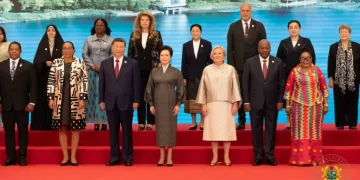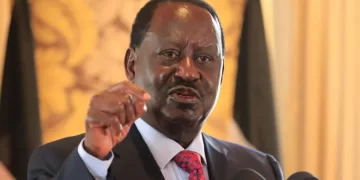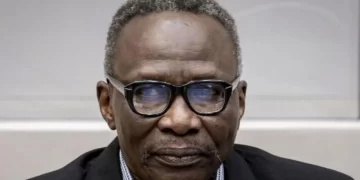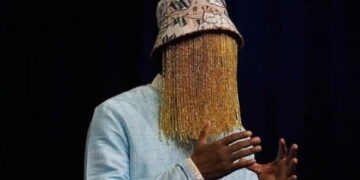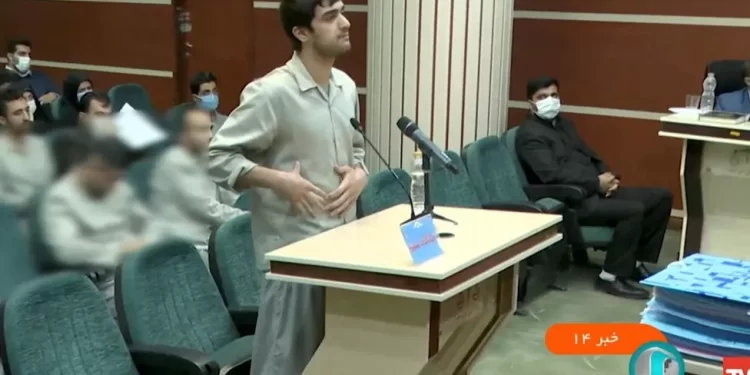Four young men have been executed in connection with the nationwide protests that erupted in Iran four months ago, while 18 other people have been sentenced to death. Human rights groups have said they were convicted after grossly unfair sham trials.
Mohammad Mehdi Karami, a 22-year-old karate champion, was hanged on 7 January, just 65 days after his arrest.
Sources have told BBC Persian that he had less than 15 minutes to defend himself in court.
His story shows how authorities in Iran are using show trials to strike fear into the hearts of the protesters, who are demanding freedom and an end to the clerical regime.
‘Don’t tell Mum anything’
The protest movement began after the death in custody of Mahsa Amini, a 22-year-old woman who was detained by morality police in September for allegedly not wearing the mandatory headscarf “properly”.
Authorities dismissed the unrest as “rioting” and launched a violent crackdown. At least 481 protesters have been killed by security forces, according to Iran Human Rights, a Norway-based non-governmental organisation.
Karami was arrested in connection with the murder of a member of the paramilitary Basij force during protests in the city of Karaj, just west of Tehran, on 3 November.
He was later charged with the capital offence of “corruption on Earth” and went on trial before a Revolutionary Court in Karaj on 30 November along with 16 other people, including three children, also accused of involvement in the murder.
Defendants are entitled to legal representation in Iran, but in sensitive cases like this one, or in espionage cases, they are not allowed to choose their own lawyers. Instead, the court appoints one from a list approved by the judiciary.
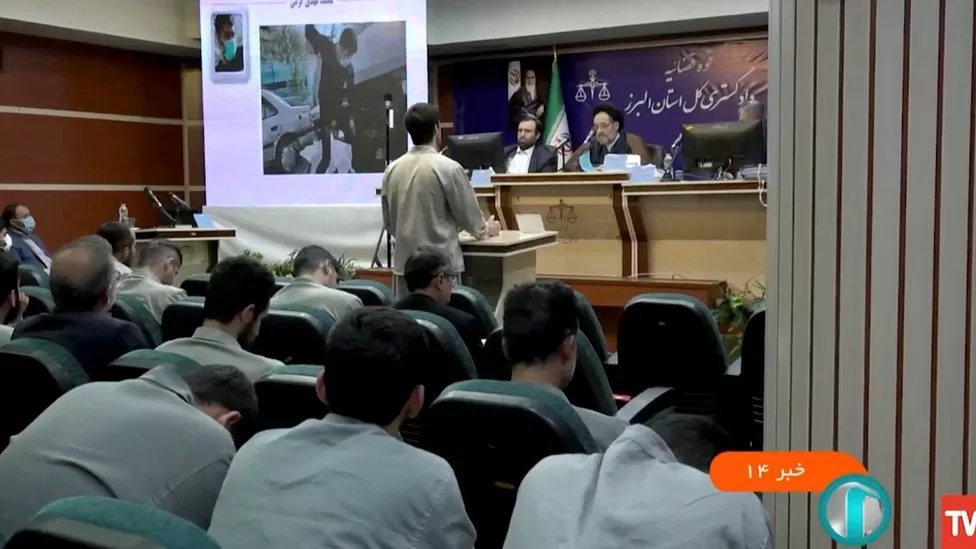
Journalists and members of the defendant’s family are also barred from being in court, so the only window into what happens behind the closed doors is heavily edited footage released by the judiciary.
In one such video, Karami appears visibly distressed as he “confesses” to hitting the Basij member on the head with a rock. His court-appointed lawyer does not challenge or dispute this and, instead, asks the judge for forgiveness. Karami then says he was “fooled” and sits down.
On 5 December, Karami was convicted and sentenced to death. Four of his co-defendants were also sentenced to death, while the children and eight others were handed lengthy jail terms, according to the judiciary.
Normally, defendants’ family members come under pressure from authorities to stay silent.
Read Also: Gold for oil we have sufficient gold to sustain the deal bank of ghana
But Mohammad’s father, Mashaalah Karami, who works as a street vendor selling packets of tissues, gave an interview to the Etemad newspaper. He said his son had called him in tears the day that he was sentenced to death.
“Dad, they gave us the verdict. Mine is the death penalty. Don’t tell Mum anything,” his father recalled, reiterating his son’s innocence.
Chilling accounts
Later, opposition activist group 1500 Tasvir published an account on social media alleging that Karami had been tortured.
It said he had told his family during a meeting in prison that he had been beaten unconscious by guards. The guards had assumed he was dead and dumped his body in a remote area, but as they left they had realised he was still alive, it added.
Karami also told his family that security agents had “touched his genitals every day and threatened to rape him” during interrogations, according to the account.
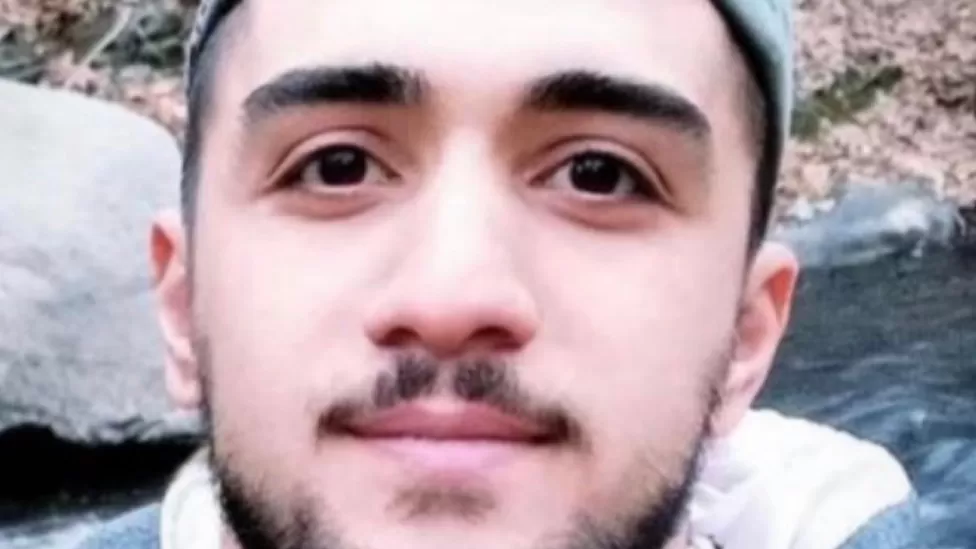
Under Iran’s legal system, when a lower court passes a death sentence it is sent to the Supreme Court for approval. But even if the Supreme Court endorses the death penalty, it can still be appealed.
Karami’s father told Etemad that he had tried to contact the state-appointed lawyer multiple times, but there had been no response.
The family then tried to hire one of Iran’s most prominent human rights lawyers, Mohammad Hossein Aghasi.
“Mohammad called me from prison three times and asked me to represent him. His parents also urged me to represent their son,” Mr Aghasi said.
Mr Aghasi wrote to the local court and then to the Supreme Court. At every stage, his letters were ignored or rejected. And lodging an appeal against the Supreme Court decision was also ruled out by a judge.
Authorities have repeatedly said the fast-track trials of protesters and the harsh sentences handed out are meant as a deterrent.
Vulnerable and isolated
Seyed Mohammad Hosseini, a 39-year-old volunteer children’s coach, was also hanged on 7 January, after standing trial alongside Karami for the same crime.
His parents are dead, so there was no family-led campaign on social media to save his life after he was sentenced. However, many Iranians shared a post saying: “We are all Mohammad’s family.”
Hosseini, who was bipolar, did manage to get independent legal representation after the Supreme Court had upheld his death sentence.
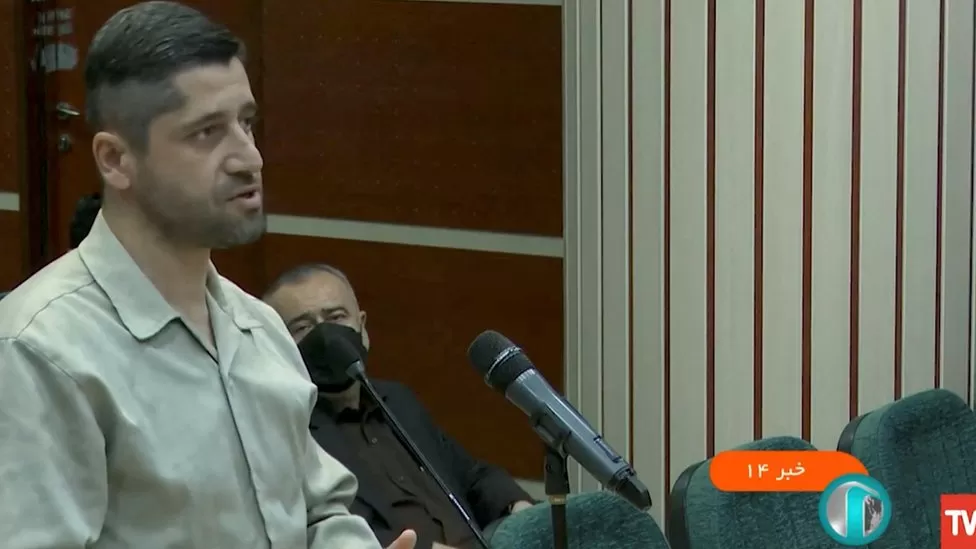
Lawyer Ali Sharifzadeh Ardakani was able to visit him in prison in December and later tweeted about it.
“He cried throughout the visit. He talked about torture, being beaten while handcuffed and blindfolded, and being kicked in the head and losing consciousness,” Mr Ardakani wrote.
“[He is] a man whose confessions have all been obtained under torture and have no legal validity.”
Mr Ardakani submitted papers to appeal the Supreme Court decision and was told to return to court on 7 January. But as he was travelling there, he heard Hosseini had been hanged.
The lawyer was later detained by the authorities and is currently out on bail. A source told BBC Persian that he faced a complaint from the Karaj prosecutor related to his tweet alleging that Hosseini was tortured.
Nowhere to turn
Human rights groups have condemned Iran’s judicial system for relying on “forced confessions”.
A source has told BBC Persian that the state-appointed lawyers effectively act as “interrogators” during trials, piling the pressure on the accused, rather than defending them.
Iran Human Rights reports that at least 109 protesters are currently at risk of execution, having been sentenced to death or charged with capital offences. It has established the ages of 60 of those protesters, and says the average is 27, with three under 18.
After Seyed Mohammad Hosseini and Mohammad Mehdi Karami were hanged, Western countries and human rights groups demanded that Iran immediately halt executions.
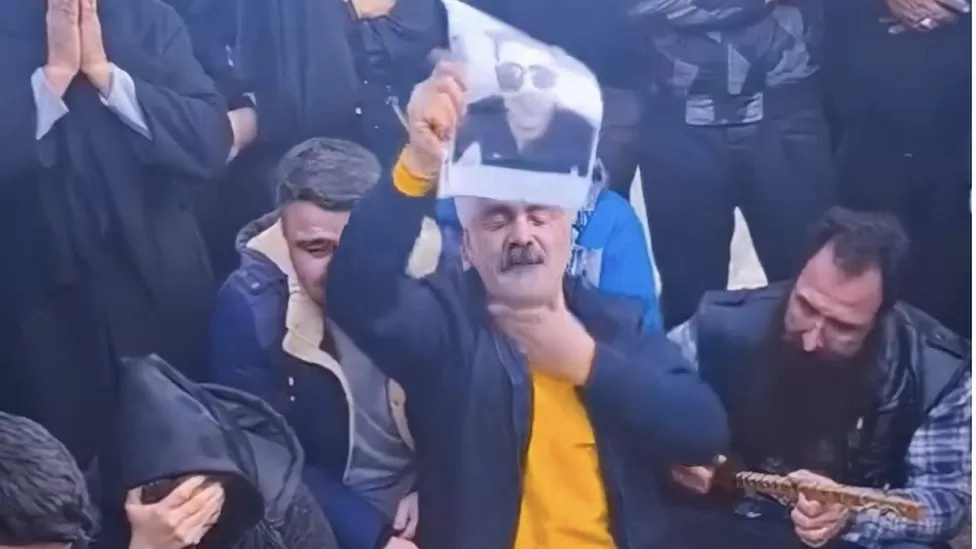
But a week later, the judiciary announced that it had hanged British-Iranian dual national Alireza Akbari, a former top Iranian defence ministry official who was convicted of spying for the UK. In an audio recording obtained by BBC Persian last week, Akbari alleged that he had been tortured and forced to “confess” to crimes he did not commit.
Meanwhile, yet another heart-breaking symbol of the protest movement was shared on social media.
A video showed Maashalah Karami kneeling at his son’s grave, wearing what appears to be his son’s yellow jumper
He is seen holding a photo of his son in one hand and clutches his own throat with the other hand, mimicking a noose.
Source: BBCNEWS









